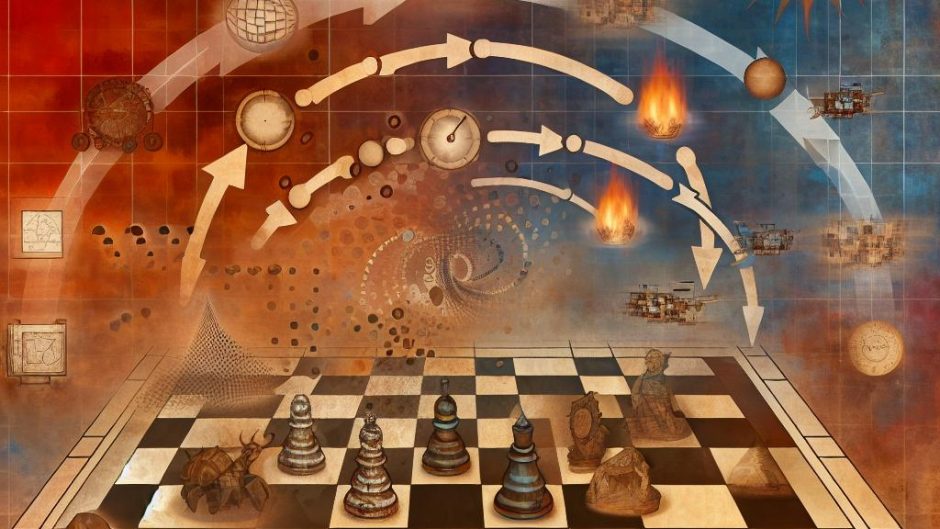The Impact of Epoch Transitions on Gameplay Strategy
Epoch transitions in strategy games serve as pivotal moments that dramatically transform the framework of player engagement, introducing new dynamics in resources, technologies, and military units. These transitions simulate a leap from one historical era to another, bringing about a fresh landscape of challenges and opportunities that necessitate an evolution in gameplay strategy. By understanding these shifts, players can effectively navigate the complexities of game progression and maintain a competitive edge.
Understanding Epoch Transitions
The concept of epoch transitions is central to many strategy games. As players progress from one epoch to another, they unlock a plethora of new elements, including technologies, types of units, and architectural advancements. This journey through epochs is not merely a superficial change; it contains substantial gameplay implications. The task for players is to adapt to the shifting capabilities of their civilizations and respond to the threats presented by adversaries who are also advancing. A comprehensive understanding of epoch transitions enables players to exploit new opportunities effectively, ensuring competitiveness throughout the game.
Adapting Strategies
In the context of gaming strategy, epoch transitions require players to constantly reassess their tactics. Each new epoch offers a unique set of technological innovations that can significantly influence economic prowess. For instance, these advancements may provide better resource gathering mechanisms or desirable trade incentives. Utilizing these improvements to maximize resource production and boost efficiency is crucial for maintaining a competitive stance. Moreover, the military landscape undergoes a transformation as new unit types and upgrades become available. A tactic that may have been effective in the previous epoch might lose its potency in the face of new capabilities. As a result, players must consider the strengths and vulnerabilities of the newly introduced military units. This assessment might entail analyzing unit compositions anew or creating alternative battle formations that leverage the technological advantages of the current era.
Resource Management
Resource management is an indispensable aspect during epoch transitions. As the game progresses, the cost associated with advancement and sustaining a civilization tends to increase, demanding more advanced economic strategies. This growth calls for meticulous planning to ensure a smooth transition without compromising resource stability. Balancing investments within infrastructure, research, and military enhancements is vital. Poor resource management can lead to stagnation, fundamentally weakening a player’s ability to compete against opponents who have efficiently navigated their transition. In this respect, resource management becomes the backbone of progression in strategy games, supporting players as they adapt and thrive through various epochs.
The Role of Timing
Timing is a critical factor in the decision-making process regarding epoch transitions. Choosing to advance early might expose a player to economic vulnerabilities, especially if preparations are insufficient to support the new demands. Conversely, delaying advancement could place a player at a significant strategic disadvantage, particularly if opponents have already harnessed the benefits of new technologies. Therefore, selecting the optimal moment to make this transition requires a delicate balance of current strategic positioning and future ambitions. This intricate dance of timing influences not only the success of the current epoch transition but also sets the stage for subsequent strategic maneuvers.
Furthermore, mastering the timing and execution of epoch transitions allows players to make informed strategic decisions, enhancing their ability to seize new opportunities while mitigating the inherent risks associated with each transitional phase. As players become more adept at understanding and implementing these complex dynamics, they significantly increase their chances of success in the ever-evolving landscape of strategy games.
By delving into the intricacies of epoch transitions, players can elevate their game, ensuring they remain well-prepared to capitalize on emerging opportunities while safeguarding against the challenges each new epoch presents. For those interested in deepening their knowledge of strategic gaming techniques, engaging with resources from game developers and participating in strategic discussions on gaming forums can be highly beneficial.
This article was last updated on: August 12, 2025






Recent Comments